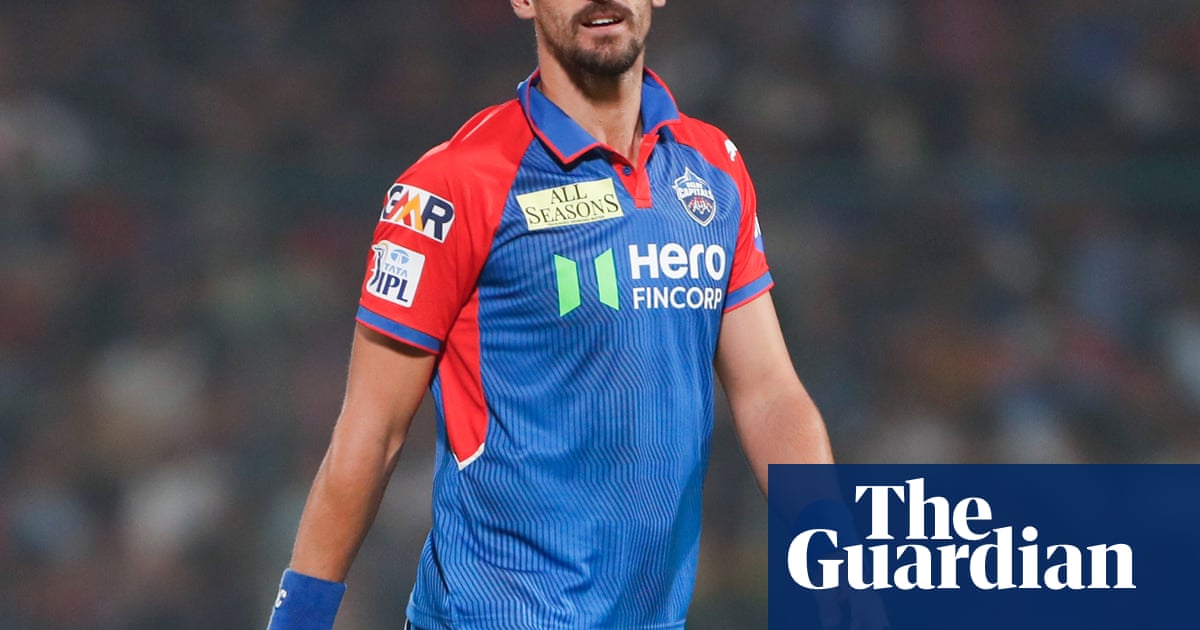Mitchell Starc has decided against returning to theIPLafter the tournament’s postponement, potentially costing the superstar up to $750,000.
Mitchell Starc has become the highest-profile Australian to opt out of returning to the IPL, with the veteran quick deciding against flying back to India.
A week after being involved in amatch that was abandoned due to nearby air-raid warnings, AAP understands Starc has told his Delhi franchise he will not finish the league.
His decision means he will have a clear runway into the World Test Championship final, avoiding the possibility of playing T20s in India a week before the match.
Starc had always appearedone of the more hesitant players to return to India, after thetournament was postponed last weekdue to the hosts’ conflict with Pakistan.
A “pause” in fighting between the two countrieshas prompted India’s cricket board to resume the league on Sunday.
The final of the tournament has been pushed back to 3 June, eight days before the WTC final between Australia and South Africa begins at Lord’s.
Australia’s captain Pat Cummins and star batter Travis Head will both return for the resumption of the IPL, with their duties to finish 25 May as Sunrisers Hyderabad are are guaranteed to miss finals.
Josh Hazlewood will assess a niggling shoulder injury before determining whether to go back for Royal Challengers Bangalore’s title tilt.
But players who featured in the abandoned match between Punjab and Delhi in Dharamshala have shown more hesitancy around the decision.
Josh Inglis has held off a decision on his plans to return for the Punjab Kings, while Starc’s teammate Jake Fraser-McGurk has also opted out of the tournament.
Starc’s wife andAustralia captain Alyssa Healy, who also fled home from Dharamshala, described last week as “terrifying”.
“There was a lot of anxiety around the Australian group because we didn’t have a whole heap of information as to what was going on,” Healy said on the Willow Talk podcast. “That’s probably been the really interesting and probably the scariest part of this whole situation, the misinformation.
Sign up toThe Spin
Subscribe to our cricket newsletter for our writers' thoughts on the biggest stories and a review of the week’s action
after newsletter promotion
“Quite close to what’s being fought over, but we were assured everything was fine, ‘everything is OK, it’s miles away, the game will go ahead and everything will be fine’.”
Starc’s decision not to return is likely to have significant financial ramifications, with players’ contracts based on pro-rata payments of games they are available for.
It means if the Capitals make the finals and feature in three playoff matches, more than a third of his $2.1m contract could be taken from him.
Even if his club fails to reach the finals, Starc could be out of pocket approximately $450,000.
There has also been some concern from players that opting out of this year’s tournament could leave them unwanted by IPL franchises in the future.
Starc has traditionally been hesitant to feature in the lucrative T20 competition, opting to prioritise his fitness for Australia and featuring in only four seasons since his first IPL in 2014.
